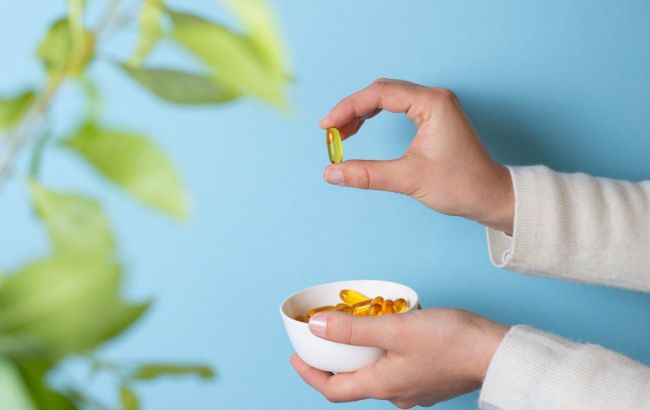Dietitian lists 5 factors that reduce vitamin absorption
 What affects the bioavailability of vitamins (photo: Freepik)
What affects the bioavailability of vitamins (photo: Freepik)
People often take various vitamins and supplements to improve their overall health. However, there are certain factors that can reduce their bioavailability, according to Ukrainian dietitian Olga Bezugla.
What is bioavailability
Understanding how effectively the body can absorb vitamins is crucial. This process, known as bioavailability, determines how much of the nutrients from food, medications, or supplements reach the cells and are used by the body.
Bioavailability refers to the amount of a nutrient from food, drugs, or supplements that is absorbed in the intestine and becomes available for activity in cells and tissues. It is an important yet often overlooked factor affecting lifespan and health quality.
In pharmacology, bioavailability is the percentage of an administered substance that enters the bloodstream. Intravenously administered drugs have 100% bioavailability. When taken orally, this percentage may decrease due to metabolism in the liver and gastrointestinal tract.
For dietary supplements, bioavailability depends not only on the amount absorbed into the blood but also on how effectively the body uses or stores it.
How vitamins are absorbed
According to the expert, the digestive system uses enzymes and emulsifiers to break down vitamins and nutrients from food and supplements to a molecular level, allowing them to be absorbed through the intestinal lining into the bloodstream.
Factors such as digestive competition and the addition of other supplements affect this process.
For effective absorption, minerals must be broken down into charged ions. Many supplements contain minerals in the form of oxides, which have lower bioavailability compared to other forms due to the complexity of ion formation.
After a breakdown, almost all vitamins and minerals are transported by proteins in the intestinal lining into the blood. High blood sugar levels can reduce the effectiveness of vitamin C transport, as both molecules use similar transporters (GLUT).
Factors reducing bioavailability
Several factors can reduce bioavailability: food quality, gastrointestinal health, pregnancy, and genetics.
It's important to note that alcohol decreases the absorption of vitamins A, D, E, K, B vitamins, magnesium, and zinc, increases the need for these nutrients, and accelerates their loss.
Caffeine reduces nutrient absorption and inhibits the absorption of B vitamins, calcium, iron, and magnesium.
Digestive issues (such as Crohn's disease, IBS, celiac disease) complicate nutrient absorption. Medications (e.g., statins) also impair the absorption and utilization of nutrients like coenzyme Q10.
Stress increases cortisol levels, depletes nutrients, and harms digestion.
When to take vitamins
Magnesium is best taken in the evening due to its calming properties, especially in the form of magnesium glycinate.
Fat-soluble vitamins A, D, and E are better absorbed with foods containing fats. Vitamin C can improve iron absorption.
The dietitian recommends storing supplements in a cool, dry place, and keeping fish oil and liquid products in the refrigerator to maintain their effectiveness.
Earlier, we reported on the benefits and risks of dietary supplements.
This material is for informational purposes only and should not be used for medical diagnosis or self-treatment. Our goal is to provide readers with accurate information about symptoms, causes, and methods of detecting diseases. RBС-Ukraine is not responsible for any diagnoses that readers may make based on materials from the resource. We do not recommend self-treatment and advise consulting a doctor in case of any health concerns.

